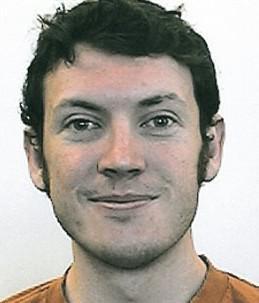
As people make sense of the senseless, like what is being called the Colorado Massacre or the Batman Shooting, we try to find an explanation. The world is a very scary place when we can’t explain why terrible things happen, especially to good people. The implication, of course, is that we fundamentally believe in the ‘just world hypothesis’ that people get what they deserve. Something as heinous as what happened at the Colorado movie theater causes us no end of emotional discomfort because if it could happen there, it could happen anywhere to any of us. Ironically, it is this phenomenon that drives the appeal of a character like Batman who battles the forces of uncertainty and evil. Where The Joker personifies unpredictable horror, Batman fights to restore order to our world so our brains can rest easy.
Since we clearly can’t blame the victims (which sadly, we often try to do), we look for answers in the shooter, James Holmes. Consequently we have to identify what makes him unusual or even aberrant that might explain such vicious antisocial behavior.
What makes him different? Holmes has no web presence, no social media profiles. How weird is that? It’s a testimony to how normal participating in the social media world is when we look at the lack of presence as an anomaly. What’s wrong with this guy that he’s not at least on Facebook? This assumption of web presence is creating an avalanche of unpleasant activity for all the other “James Holmes” out there. It also is an indication of our search for answers — the assumption that the perpetrator of such a random act of violence must have at least left a digital trail of his downward spiral.
No web presence can be a sign of social isolation
If someone said that Holmes was a loner with no friends, we would find that fits our mental model of a potentially disturbed person. But since we’ve been demonizing the use of social media, we now have to do a cognitive shift and recognize that social media is a way of connecting and having friends and that it is, OMG, normal. We obviously don’t know whether or not Holmes was participating, either benignly or maliciously, in chat rooms or forums under a screen name. But we’re looking for something to blame and since we’ve hit a dead end on getting insight due to his lack of web presence. Therefore, we’re using that lack to describe his pathology.
We can ask the same questions about the lack of web presence that we ask for anyone who isolates themselves in other ways. Was Holmes socially isolated in all senses? We know that social isolation can amplify the negative consequences of stress and increase the risk of developing psychopathology. Some research results have shown that social isolation actually delays the positive effects of activities found to be emotionally beneficial, such as exercise. We also know that social isolation increases loneliness (duh), fear of others, and negative self-esteem.
We don’t know what caused Holmes to have such a break with reality. His reported history suggests some challenges that may have created anger or a sense of embitterment that lead to fantasies of revenge. But this is speculation. He could also be ill. We also don’t know what trigger caused him to enter the movie theater and unleash gas canisters and rounds from an automatic rifle during a midnight showing of The Dark Knight Rises. We may never know.
Given the pain in the senselessness of the action, it wouldn’t be surprising for people to find closure by blaming something tangible: gun laws, violence in movies, comics, Batman or The Joker. This is a very human response to trying to deal with the cognitive discomfort of uncertainty and to restore a perception of order in a chaotic and unpredictable world.
Cross-posted on Psychology Today in Positively Media
—
Doug Gross from CNN.com also addresses this topic in Why did Colorado shooting suspect avoid social media?
Photo Credit: BBC

